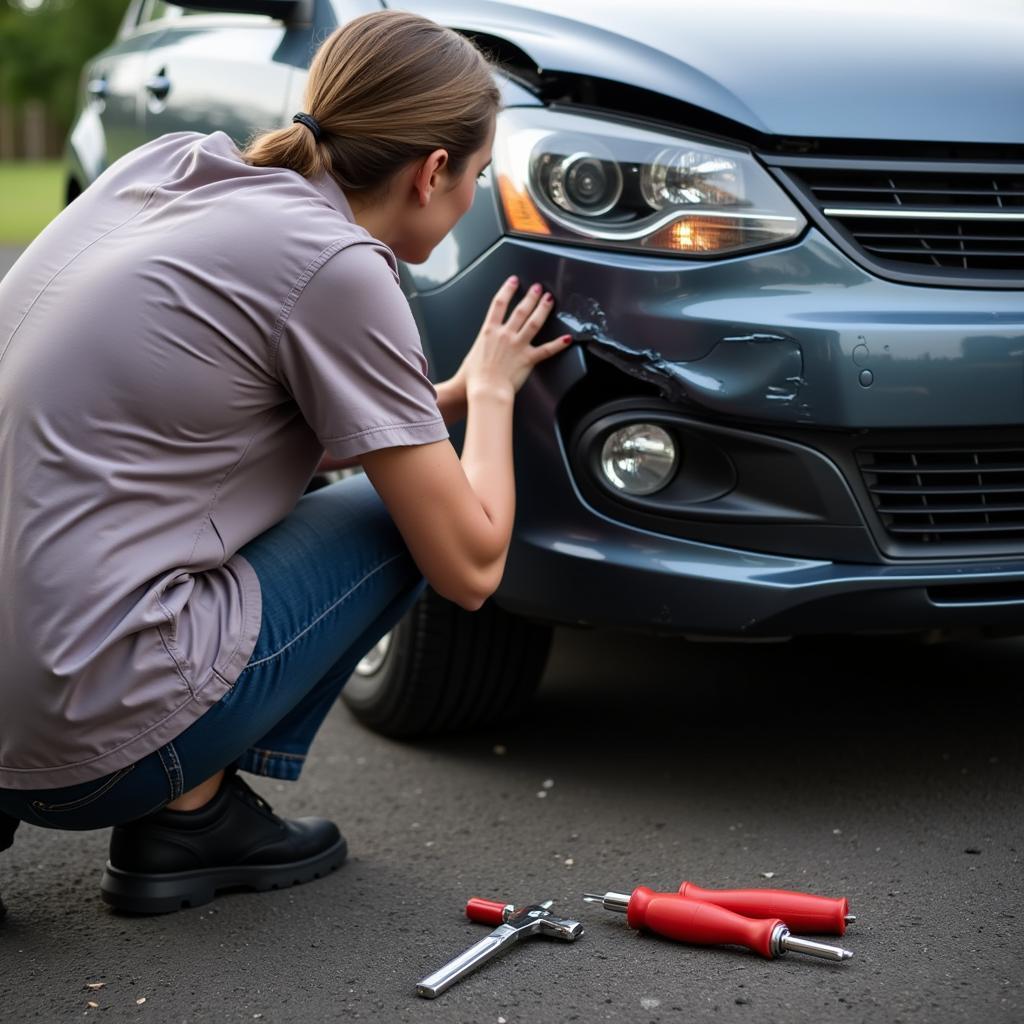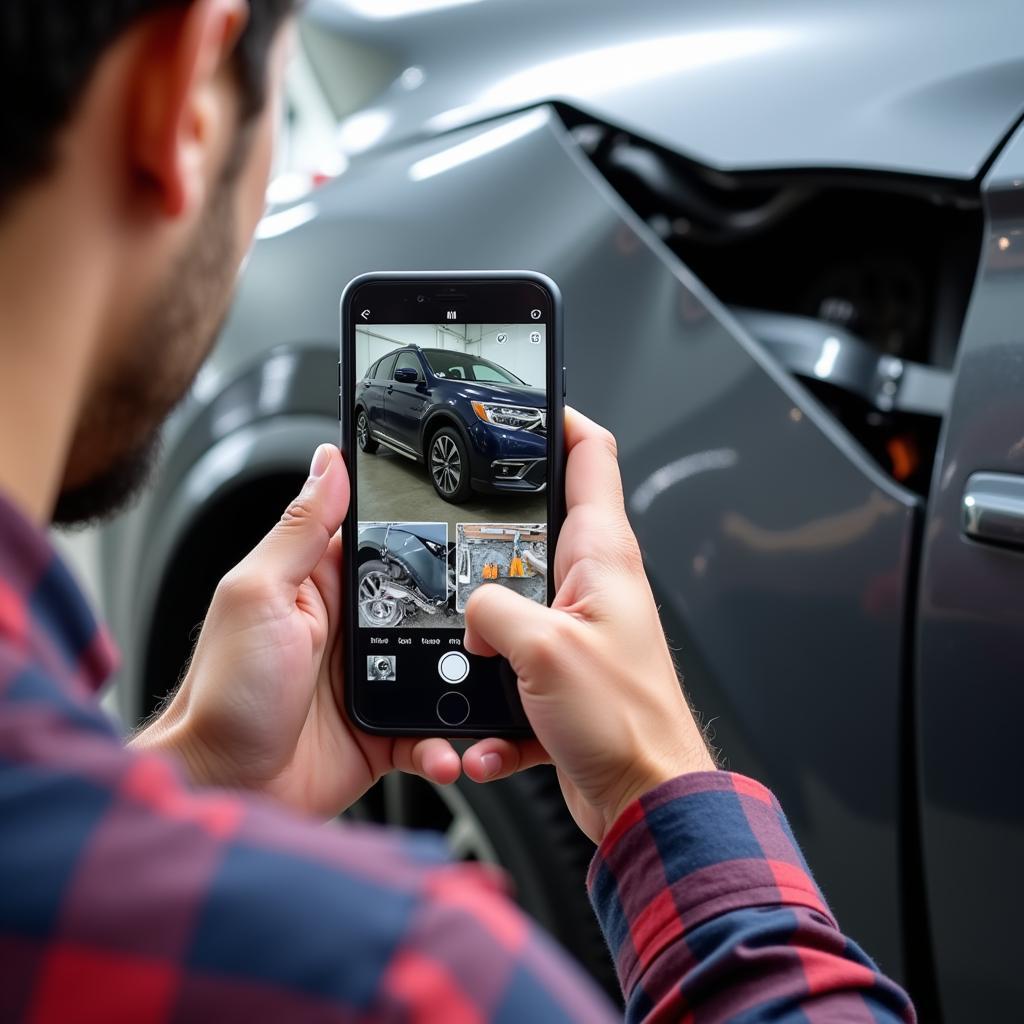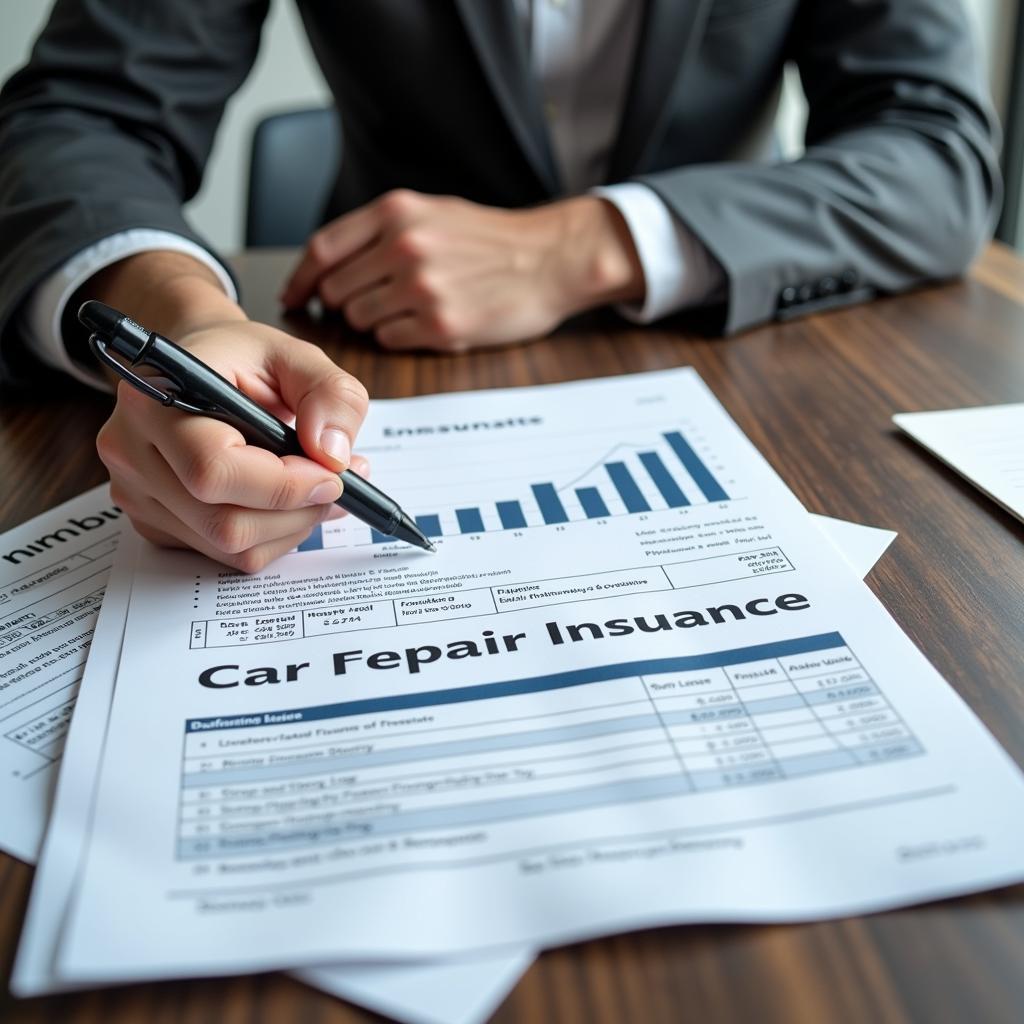Can I Repair My Own Car After Filing A Claim? This is a common question for car owners facing vehicle repairs after an accident. Understanding your options after filing a claim can be confusing, especially when considering DIY repairs. This article will explore the factors that influence your ability to repair your own vehicle after a claim, the potential benefits and drawbacks, and ultimately, guide you toward making the informed decision that’s right for you.
Understanding Your Insurance Policy and Repair Options
The first step in determining if you can repair your own car after filing a claim is to thoroughly understand your insurance policy. Different policies have different stipulations regarding repairs. Some policies may explicitly state whether or not DIY repairs are allowed, while others may be more ambiguous. Contacting your insurance provider directly is crucial to clarify their specific requirements and avoid any potential issues down the line. They can explain the claims process, the approved repair shops in their network, and the implications of choosing to repair the car yourself.
Key factors that may influence your ability to perform DIY repairs include the severity of the damage, the state you live in, and the type of insurance coverage you have (liability, collision, comprehensive). For example, if the damage is extensive and involves structural components, your insurance company might require the repairs to be carried out by a certified professional for safety reasons.
 DIY Car Repair After Accident
DIY Car Repair After Accident
Pros and Cons of DIY Car Repair After an Insurance Claim
Opting to repair your own vehicle after filing a claim can offer certain advantages, primarily cost savings. Professional repairs can be expensive, and if you possess the necessary skills and tools, DIY repairs can significantly reduce the overall cost. Furthermore, you have complete control over the repair process, ensuring the work is done to your standards and using parts of your choosing.
However, DIY repairs are not without their challenges. Repairing a car, especially after an accident, can be complex and require specialized knowledge. Improperly performed repairs can compromise the safety and performance of your vehicle. Additionally, your insurance company might not cover the cost of parts if you choose to repair the car yourself, and they may not guarantee the quality of your work should future problems arise related to the initial damage.
“Choosing DIY repairs can be a great option for minor damage if you have the skills,” says John Miller, ASE Certified Master Technician. “But it’s crucial to understand the potential implications for your insurance coverage and the safety of your vehicle.”
Navigating the Claims Process for DIY Repairs
If your insurance policy allows for DIY repairs, it’s essential to document the entire repair process meticulously. Take detailed photos and videos of the damage before and after the repairs. Keep receipts for all parts purchased, and maintain a log of the labor hours invested. This documentation serves as proof of the repairs performed and can be valuable if any disputes arise with the insurance company later.
 Documenting Car Repair Process
Documenting Car Repair Process
Remember, even if you’re performing the repairs yourself, communication with your insurance company is paramount. Keep them informed of your progress and ensure they approve the parts you intend to use. This open communication can help avoid any misunderstandings or delays in the claims process.
What if My Insurance Company Doesn’t Allow DIY Repairs?
If your insurance company doesn’t permit DIY repairs, you typically have two options: use an approved repair shop within their network, or obtain multiple estimates from independent shops and negotiate with your insurer to cover the cost of repairs at your chosen shop. “Negotiating with your insurance company can sometimes be successful,” advises Sarah Chen, Insurance Claims Adjuster. “Especially if you can demonstrate that an independent shop offers higher quality repairs at a comparable or lower price.” Always remember to thoroughly document any communication and agreements made with your insurance company.
 Negotiating with Insurance Company
Negotiating with Insurance Company
Conclusion
Can I repair my own car after filing a claim? The answer depends on various factors including your insurance policy, the extent of the damage, and your own skills and resources. While DIY repairs can offer potential cost savings, it’s vital to carefully weigh the pros and cons and understand the potential risks involved. Communicating transparently with your insurance company throughout the entire process is key to ensuring a smooth claims experience and avoiding any unforeseen complications. By understanding your rights and responsibilities, you can make an informed decision about whether DIY car repair after filing a claim is the right choice for you.
FAQs
- What if I don’t have the skills to repair my car myself? If you lack the necessary skills, using a professional repair shop is recommended.
- Can I use aftermarket parts for DIY repairs? Check with your insurance company regarding their policy on aftermarket parts.
- What happens if my DIY repairs are faulty? Your insurance company might not cover any further damage resulting from faulty DIY repairs.
- How do I find a reputable independent repair shop? Seek recommendations from friends, family, or online reviews.
- What if my insurance company undervalues the repair costs? You can negotiate with them or seek an independent appraisal.
- Can I get reimbursed for DIY repairs? This depends on your insurance policy. Some policies offer reimbursement, while others do not.
- What is the difference between liability, collision, and comprehensive coverage? These coverages protect against different types of incidents, so understanding the differences is essential.
Need further assistance? Please contact us via WhatsApp: +1(641)206-8880, Email: [email protected]. We have a 24/7 customer support team ready to help.

Leave a Reply